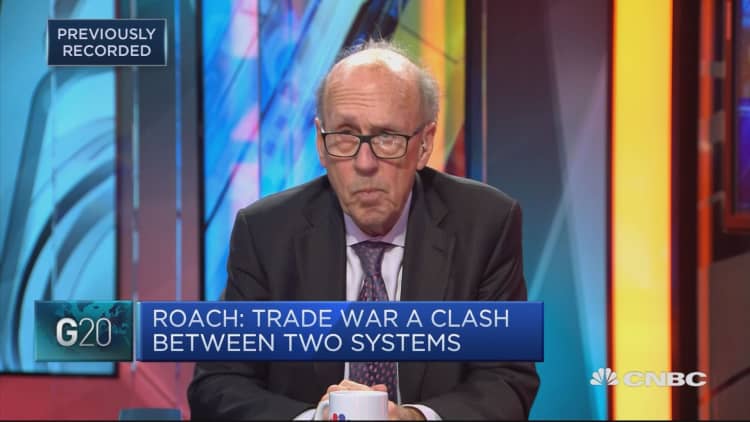Federal Reserve Chairman Jay Powell would be wrong to copy the playbook of his predecessor Alan Greenspan, according to a Yale lecturer and former Morgan Stanley executive.
Powell has been criticized by some market players, as well as by Donald Trump, who believe the central banker risks triggering a U.S. economic contraction by enforcing multiple rate rises next year.
In the 1990s, then Fed-chair Greenspan took a watch-and-wait policy, keeping rates low to see if inflation would materialize in the face of a growing economy. At the Federal Reserve's annual retreat to Jackson Hole, Wyoming, in August, Powell praised Greenspan's do-nothing stance as sound risk management.
But Stephen Roach, a senior fellow at Yale University and former chairman of Morgan Stanley Asia, told CNBC's "Squawk Box Europe" on Friday that Powell would do well to learn from Greenspan's mistakes.
"The Greenspan 'put' supported markets a lot, but he also gave us lots of bubbles and crises that were spawned by those bubbles which I think history does not treat kindly at all," he said.
The veteran economist added that it was not "such a bad thing that Jay Powell is not a clone of Alan Greenspan."
Stocks in the U.S. ripped higher Wednesday after Powell said that the Fed funds rate was now just below the range of estimates for neutral.
The futures market has interpreted that to mean only one hike will be needed next year to take the U.S. economy into a "neutral zone" that neither fuels nor dampens inflation.
Equity investors took it, meanwhile, as a sign that the Fed was now set to be less aggressive with rates, meaning funding costs for corporate America should be lower and consumers should have more discretionary cash to spend.
Roach said the change in tone from the Fed chair was not an example of Powell bending to markets, or becoming more like Greenspan, but was more indicative that he was doing a real-time assessment of inflation risks.
The economist added that should a trade war slow U.S. or global growth, he would expect the Fed to be far less aggressive on raising rates.

Fed minutes released Thursday pointed toward the likelihood that another quarter-point adjustment in the central bank's benchmark rate target will go ahead in December.


